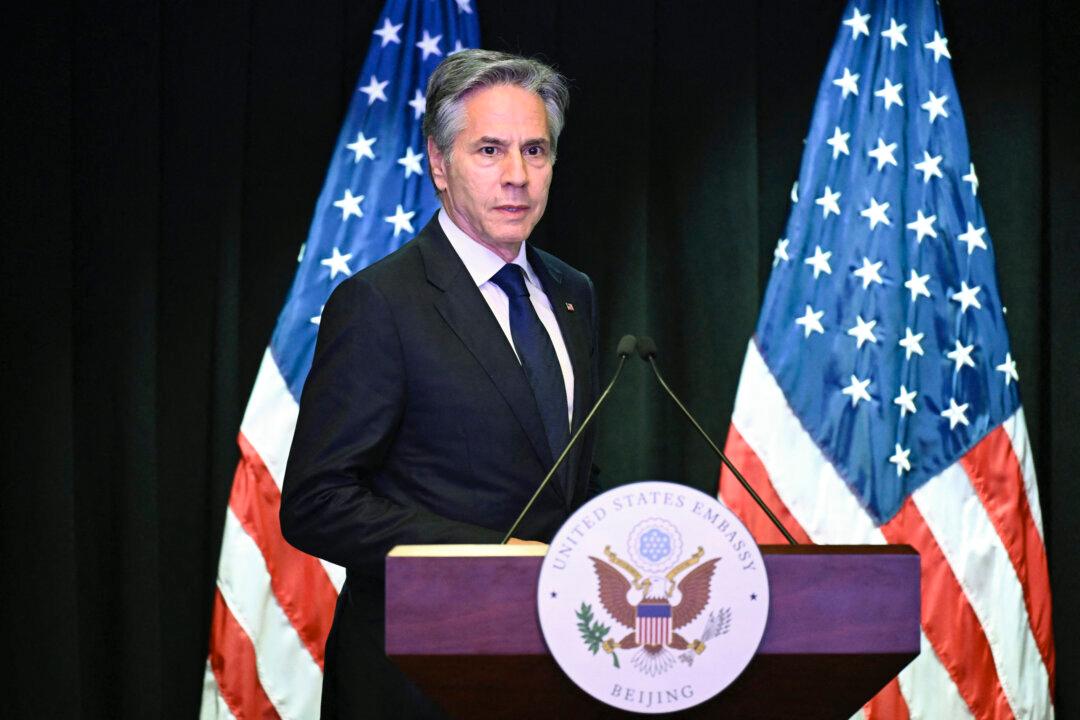The Chinese Communist Party (CCP) is “powering” Russia’s war against Ukraine, and Moscow would “struggle” to sustain its attack without the Chinese support, Secretary of State Antony Blinken said on April 26 before leaving China, ending his three-day trip.
The trip marked Mr. Blinken’s second trip to China in less than a year, and on both occasions, he held face-to-face talks with Chinese leader Xi Jinping. Before concluding his latest trip, Mr. Blinken also met with the CCP’s top diplomat, Wang Yi, the public security minister, Wang Xiaohong, and Shanghai’s CCP chief, Chen Jining.





